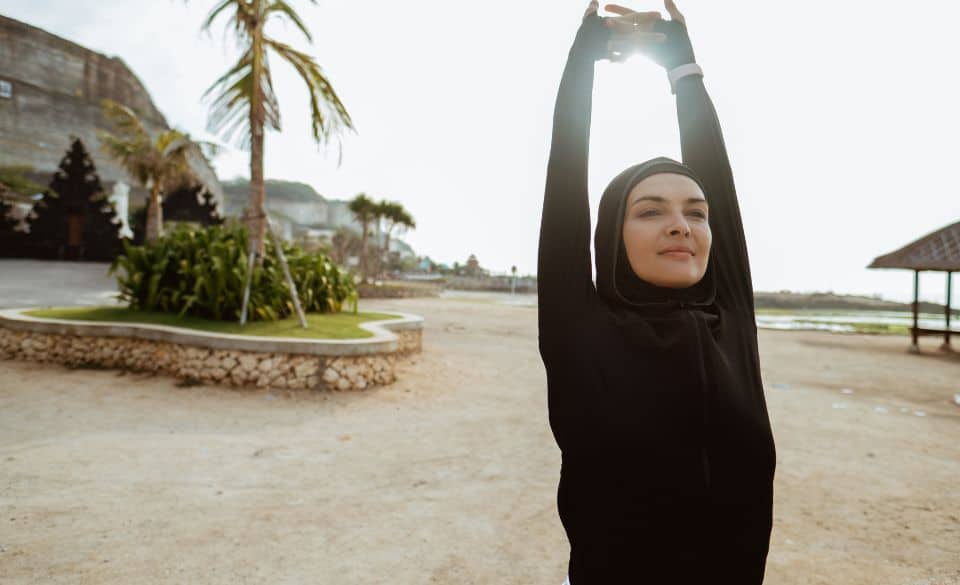
Best Way to Workout During Ramadan: A Guide to Maintaining Fitness and Health
Page Contents
Ramadan is a sacred month observed by millions of Muslims worldwide, during which fasting from dawn to sunset is a central practice. While fasting offers numerous spiritual benefits, many individuals often wonder about the best approach to maintain their fitness and health during this holy month. In this article, we will explore some effective strategies and provide insights backed by scientific studies on the best way to workout during Ramadan.
Understand Your Body and Adjust Your Workout Routine
During Ramadan, it is essential to be mindful of your body’s needs and adjust your workout routine accordingly. Since fasting can alter your energy levels and metabolism, it’s crucial to listen to your body and make necessary adaptations. Some studies suggest that exercising in the late afternoon or evening, closer to Iftar (the meal that breaks the fast), can be more effective for maintaining muscle mass and strength. This timing allows you to replenish your body with essential nutrients after the workout.
Moreover, it is recommended to opt for shorter, high-intensity workouts rather than long endurance sessions. High-intensity interval training (HIIT) has been found to be particularly beneficial during Ramadan. HIIT involves short bursts of intense exercise followed by brief periods of rest. This type of workout not only saves time but also helps maintain cardiovascular fitness and promotes fat loss.
Stay Hydrated and Nourished
Proper hydration and nutrition are key components of a successful workout routine during Ramadan. Since you abstain from food and water during daylight hours, it becomes even more crucial to focus on adequate hydration and nourishment during non-fasting hours. Drinking plenty of water between Iftar and Suhoor (the pre-dawn meal) is essential to prevent dehydration and optimize exercise performance.
To ensure adequate energy levels for your workouts, it’s important to consume a well-balanced Suhoor and Iftar. Include complex carbohydrates, such as whole grains and fruits, which provide sustained energy throughout the day. Additionally, prioritize lean sources of protein, such as chicken, fish, and legumes, to support muscle repair and recovery. Including a variety of fruits and vegetables will provide essential vitamins, minerals, and fiber.
Listen to Your Body and Practice Self-Care
While maintaining fitness during Ramadan is important, it is equally crucial to listen to your body and practice self-care. Fasting can impact your energy levels and overall well-being, so it’s essential to prioritize rest and recovery. If you feel excessively fatigued or lightheaded, it may be necessary to modify or skip your workout for the day. It’s important to remember that taking care of your body and honoring its needs are integral parts of the Ramadan journey.
Additionally, incorporating stress-reducing practices, such as meditation, deep breathing exercises, or gentle stretching, can be beneficial during this time. These activities promote relaxation and help manage stress, which may be heightened during fasting. Remember to get sufficient sleep as well, as restorative rest is crucial for both physical and mental health.
Seek Professional Guidance
If you’re new to exercising during Ramadan or have specific fitness goals, it can be beneficial to seek guidance from a qualified fitness professional. They can assess your current fitness level, help design a customized workout plan that aligns with your fasting schedule, and provide valuable insights and support throughout the month.
A fitness professional will consider factors such as your age, fitness level, any pre-existing medical conditions, and the duration of your fasting period. They can guide you on the appropriate intensity, duration, and timing of your workouts, ensuring that you stay safe and achieve your fitness goals effectively.
Best Workouts During Ramadan
During Ramadan, when you’re fasting from dawn to sunset, it’s important to choose workouts that are effective, time-efficient, and mindful of your energy levels. Here are some of the best workouts you can consider during Ramadan:
High-Intensity Interval Training (HIIT): HIIT workouts involve short bursts of intense exercise followed by brief periods of rest. They are great for maximizing calorie burn and maintaining cardiovascular fitness while saving time. You can choose bodyweight exercises like burpees, squats, push-ups, and jumping jacks, and perform them in quick succession with short rest intervals in between.
Strength Training: Incorporating resistance training into your workout routine during Ramadan can help maintain muscle mass and strength. Focus on compound exercises that work multiple muscle groups simultaneously, such as squats, deadlifts, lunges, and push-ups. Aim for shorter, intense sessions with higher weights and fewer repetitions.
Yoga and Stretching: Gentle activities like yoga and stretching can be beneficial during Ramadan. They help improve flexibility, reduce muscle soreness, and promote relaxation. Consider practicing yoga poses, such as the downward dog, warrior poses, and gentle stretches that target major muscle groups. These exercises can be performed at a slower pace and are particularly suitable for low-energy periods during fasting.
Low-Impact Cardio: If you prefer cardiovascular exercises but want to minimize impact on your joints, opt for low-impact activities such as walking, swimming, or cycling. These exercises provide cardiovascular benefits without placing excessive strain on your body. You can go for a brisk walk after Iftar or try indoor cycling or swimming during non-fasting hours.
Remember, the key is to choose exercises that align with your energy levels and allow you to maintain an active lifestyle without overexertion. It’s important to listen to your body, modify the intensity if needed, and prioritize rest and recovery. Additionally, consider consulting with a fitness professional to tailor a workout plan that suits your individual needs and goals.
Overall, finding the best workouts during Ramadan involves a combination of high-intensity exercises, strength training, flexibility work, and low-impact cardio. The key is to strike a balance between challenging yourself physically while being mindful of your fasting obligations and energy levels.
Scientific Studies Supporting Exercise during Ramadan
Several scientific studies have examined the effects of exercise during Ramadan, providing valuable insights into the best practices for maintaining fitness and health. For example, a study published in the Journal of Sports Sciences found that participants who engaged in resistance training during Ramadan were able to maintain their strength levels, even with the reduced food intake and altered sleep patterns.
Another study published in the Journal of Sports Medicine and Physical Fitness demonstrated that individuals who performed aerobic exercise during Ramadan experienced improvements in their cardiovascular fitness, body composition, and insulin sensitivity. The research highlighted the benefits of moderate-intensity aerobic exercise for overall health and well-being during fasting.
These studies emphasize that exercise during Ramadan can have positive effects on various aspects of fitness, including strength, cardiovascular health, and body composition. However, it is important to remember that individual responses to exercise may vary, and it’s always recommended to listen to your body and consult with a healthcare professional before embarking on any new exercise regimen.
Conclusion
Maintaining a workout routine during Ramadan is possible with some thoughtful adjustments and self-awareness. By understanding your body’s needs, adapting your workout routine, staying hydrated and nourished, and practicing self-care, you can ensure that you stay healthy and active throughout the holy month. Remember to consult with your healthcare provider before making any significant changes to your exercise or dietary routine. Ramadan is a time for self-reflection, spirituality, and improved well-being, and by following these guidelines, you can continue your fitness journey while honoring the traditions of this sacred month.



